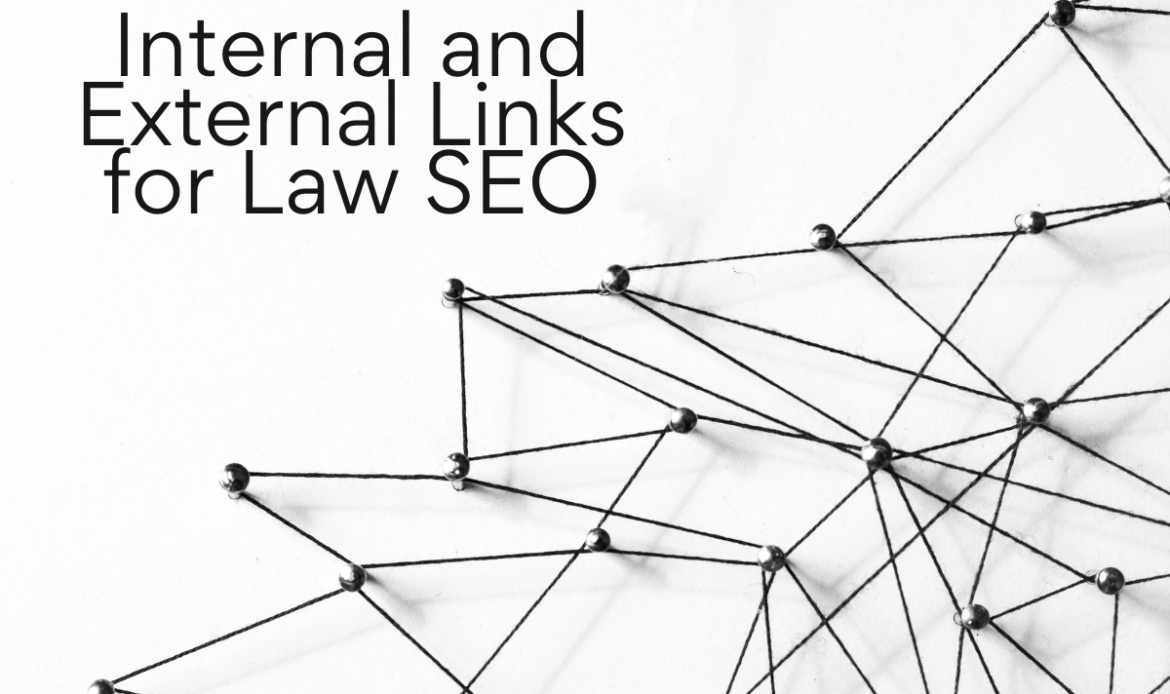Internal and external links are fundamental to your law firm’s website structure and search engine optimization (SEO) strategy. These links help guide users and search engines through your site, enhancing user experience and your site’s visibility. Let’s take a closer look at what both of them do for your family law website.
Internal Links
Internal links are hyperlinks that direct to another page on the same domain. For example, a link on your blog post that leads to your “Contact Us” page is internal. These links are crucial for several reasons:
1. User Navigation
Internal links guide users through your site, leading them from general information to more specific content. This can increase the time spent on your site, potentially leading to higher engagement rates.
2. Site Structure and Hierarchy
Internal linking helps establish an information hierarchy for your family law website, making it easier for users and search engines to comprehend the content’s structure and importance.
3. Page Authority
By linking from high-authority pages on your site to lower-authority ones, you distribute “link juice,” helping boost these pages’ ranking potential.
4. Reducing Bounce Rate
Internal links can encourage users to explore more of your site, reducing the bounce rate.
External Links
External or outbound links are hyperlinks pointing to a different domain. For instance, a link on your blog post that points to a court case on a government website is external. Here’s why they matter:
1. Source Credibility
External links to authoritative sites can enhance your website’s credibility. It shows you’ve researched your content and you’re referencing reputable sources.
2. SEO Ranking
Search engines utilize external links as a ranking factor. Having quality external links can help improve your site’s SEO and visibility.
3. Relationship Building
Linking to other reputable websites can help you build relationships with other businesses or industry influencers, potentially leading to collaborations or backlinks.
4. Value Addition
External links can provide additional information or different perspectives on a topic, increasing the value of your content to the users.
Importance for Family Law Websites
For law websites, both internal and external links play a significant role:
1. Client Experience
Legal topics can be complex. Strategic internal linking can guide clients through their legal journey, while external links can offer further reading or proof of your claims.
2. Boosting Authority
In a field like law, being credible and trustworthy is crucial. Relevant and high-quality external links can boost your site’s trustworthiness, while an excellent internal linking strategy can emphasize your key service areas.
3. SEO
In a competitive industry like law, SEO is crucial. Effective linking can improve your site’s visibility, helping you rank higher for legal keywords.
4. Local SEO
For law firms serving a specific area, linking to local businesses, community events, or legal statutes can help with local SEO.
Conclusion
In conclusion, a robust internal and external linking strategy can significantly impact your law website’s SEO performance and user experience, increasing visibility and potential client engagement. So, to ensure you’ve got the best SEO strategy possible developed for your law firm, you must consider hiring Victory Law Marketing for all of your law SEO needs. We can be reached at (949) 800-6990 or (310) 341-3939 and offer a free consultation for all our services, including SEO, social media marketing, web design, and more.


